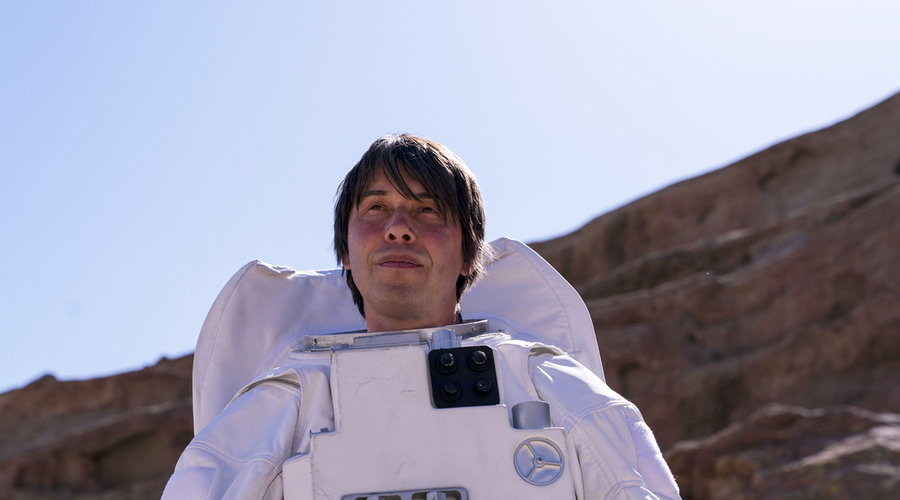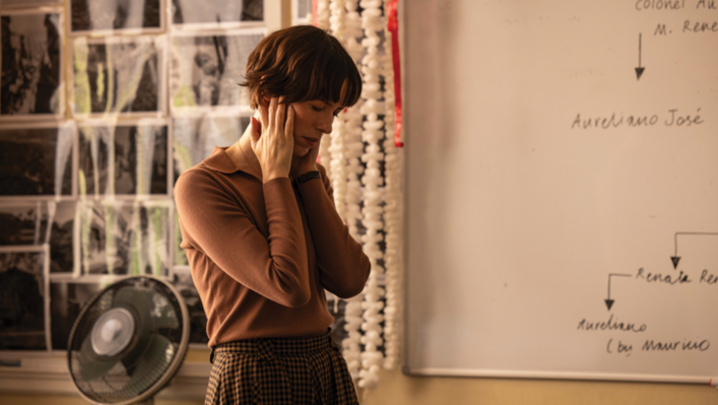Brian Cox has fulfilled a boyhood ambition to explore the red planet for a new BBC doc, reports Matthew Bell.
In 1980, the 12-year-old Brian Cox wrote to Nasa asking for photographs of its space missions, including shots from the mid-1970s Viking programme to land a spacecraft on Mars.
Speaking from Seattle at an online RTS London event in June, the physicist and TV presenter recalled: “I was so excited when this package came back.”
He continued: “It’s one of the most wonderful things that Nasa does. It doesn’t only… attempt to answer some of the biggest questions that we can ask, in this case, ‘Are we alone in the universe?’… but also, it engages with the next generation.”
More than four decades later, Cox walked through the gates of the Jet Propulsion Laboratory in Pasadena, California, to see Nasa’s Mars mission guide the Perseverance rover and the Ingenuity helicopter across the surface of the planet for the feature-length BBC documentary, Brian Cox: Seven Days on Mars.
The film was shot over seven days at the laboratory, mission control for the Mars 2020 project, to find signs of ancient life on the planet. “Out of these seven days, we had to get a 90-minute film,” explained director Michael Lachmann.
The production challenge, he recalled, involved “screwing up your courage and jumping into this environment… and having faith that what’s going to happen is going to be interesting enough to fill a film”.
Perseverance is collecting rock samples from an ancient river delta, from which scientists hope to “understand the history of Mars” and ascertain whether “it could have harboured life”, explained Vandi Verma, chief engineer for Perseverance Robotic Operations at the Nasa laboratory.
So far, in just over a year, the rover has covered 12km of the red planet’s surface. “It’s been a very exciting mission,” she added. However, patience is required – the samples will not be brought back to Earth until the 2030s.
Space exploration, like making TV programmes during the Covid pandemic, is unpredictable. The documentary should have been shot in early January, but the Omicron outbreak led to a delay of a couple of months.
As events transpired, this was fortunate – a mechanical problem had left Perseverance immobile during the planned week of filming. “It felt like we had dodged a bullet,” said Lachmann. “For the entire week we were meant to be there, the rover did nothing.”
The crew finally travelled to Pasadena at the beginning of March, only to encounter another problem: Perseverance’s drill was stuck in a rock on the surface of Mars. “Luckily for us, [Nasa] had a plan to get it out and that became part of the narrative that drove the rest of the programme,” said Lachmann.
The documentary offers a fascinating glimpse of life on Mars, thanks to the pictures and sounds sent back to Earth by Perseverance. “When that rover moves, you have a view of Mars that no one has ever seen,” said Cox. Yet, “you do see a world that looks extremely similar to Earth”.
In fact, it is the only planet, other than Earth, that humans could even stand on. “So, you see a familiar world, but it’s also, we have to remember, an alien world, hundreds of millions of miles away.”
At one level, space exploration, continued Cox, “is about detail, engineering, precision and technology”, but “at the other end of the scale, simultaneously, it’s one of the grandest philosophical quests.
“How is it that collections of atoms, essentially as old as time, that are processed in the hearts of long dead stars, can come together to be us?”
Brian Cox: Seven Days on Mars was broadcast on BBC Two on 17 June and is now on iPlayer. The RTS London event was held on 8 June, chaired by Ash Potterton, executive producer for the film’s maker, Arrow Media, and produced by Terry Marsh and Phil Barnes.







